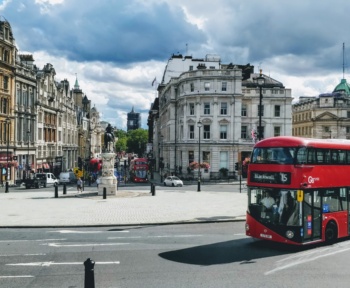The EB-2 visa is an employment-based immigrant visa category in the United States. It is intended for individuals with exceptional ability in the sciences, arts, or business, or those who hold an advanced degree and can provide significant benefit to the U.S. economy, culture, education, or welfare. The EB-2 visa is part of the employment-based immigration system, which grants permanent residency (commonly known as a green card) to foreign nationals who qualify under specific employment-based categories.
Requirements for EB-2A Visa (Advanced Degree)
The EB-2A visa, also known as the Employment-Based Second Preference category for individuals with an advanced degree, is a specific subcategory of the EB-2 visa. To qualify for an EB-2A visa, you must meet the following requirements:
- Advanced Degree: You must possess an advanced degree or its foreign equivalent. This typically includes a master’s degree, a Ph.D., or an equivalent degree beyond a bachelor’s degree. The degree must be relevant to the position you will be employed in the United States.
- Job Offer and Labor Certification: You must have a job offer from a U.S. employer who is willing to sponsor you for permanent residency. The employer is generally required to obtain a labor certification from the U.S. Department of Labor (DOL) to demonstrate that there are no qualified U.S. workers available for the position.
- Qualifying Job: The job you are offered must require an advanced degree and must be in the same or a closely related field to your area of expertise. The employer must provide evidence that the position genuinely necessitates an individual with an advanced degree.
- Exceptional Ability: In some cases, if you can demonstrate exceptional ability in the sciences, arts, or business, you may also qualify for the EB-2A visa. Exceptional ability refers to a level of expertise significantly above the average in your field. The evidence required to demonstrate exceptional ability may include professional achievements, publications, membership in professional associations, awards, or other recognized forms of acclaim.
- National Interest Waiver (NIW): Alternatively, you may qualify for a national interest waiver, which allows you to bypass the job offer requirement and the labor certification process. To obtain a national interest waiver, you must demonstrate that your work is in the national interest of the United States and that it would benefit the country significantly. This typically involves proving that your work has substantial intrinsic merit, is beneficial to the U.S. national economy, culture, education, or welfare, and that it would be impractical to require a labor certification.
It’s important to note that the specific requirements and processes for the EB-2A visa can vary, and it is recommended to consult with an immigration attorney or review the official USCIS website for the most up-to-date and accurate information.
Requirements for EB-2B Visa (Exceptional Ability)
Apologies for the confusion in my previous response. The correct designation for the category you are referring to is EB-2B visa, which is for individuals with exceptional ability. The requirements for the EB-2B visa are as follows:
- Exceptional Ability: To qualify for the EB-2B visa, you must demonstrate exceptional ability in the sciences, arts, or business. Exceptional ability means that you have a level of expertise significantly above the average in your field. You must provide extensive documentation and evidence of your exceptional ability, such as professional achievements, published articles, awards, memberships in professional associations, or other recognized forms of acclaim.
- Job Offer: While the EB-2B category does not require a specific job offer, you must demonstrate that you will continue to work in your field of exceptional ability in the United States. This can be done by providing documentation of prospective employment, contracts, or other evidence of your intention to work in your field.
- National Interest Waiver (NIW): Similar to the EB-2A category, you may also be eligible for a national interest waiver. This waiver allows you to bypass the requirement of a job offer and the labor certification process. To obtain a national interest waiver, you must demonstrate that your work is in the national interest of the United States, and that it would benefit the country significantly. This typically involves proving that your work has substantial intrinsic merit, is beneficial to the U.S. national economy, culture, education, or welfare, and that it would be impractical to require a labor certification.
The CGM App is designed for expats, sponsoring companies and business immigration advisors. Click here to get started
It’s important to note that meeting the exceptional ability threshold alone does not guarantee approval of the EB-2B visa. The U.S. Citizenship and Immigration Services (USCIS) evaluates each application holistically, considering various factors and evidence. Additionally, it is advisable to consult with an immigration attorney or visit the official USCIS website for the most accurate and up-to-date information regarding the EB-2B visa.
EB2 visa Documents needed
The employer must include specific types of evidence with Form I-140 to establish the non-U.S. citizen applicant’s eligibility based on an advanced degree or exceptional ability. Below, we provide a list of acceptable documents for each category.
Advanced Degree
- Official academic record from an academic institution indicating the completion of an advanced degree (or its equivalent).
- Official academic record demonstrating the completion of a bachelor’s degree, accompanied by letters from employers verifying at least 5 years of relevant post-bachelor’s degree work experience.
Exceptional Ability
To demonstrate an ability beyond what is typically encountered in the arts, business, or sciences, the applicant must provide a minimum of three of the following pieces of evidence:
- Official documentation showing the attainment of a degree or certificate in the relevant field.
- Membership in a professional association or club related to the field.
- Official recognition or acknowledgments from organizations or colleagues regarding the applicant’s significant contributions to the field.
- Proof of payment for services related to the applicant’s exceptional ability.
- A license or certification relevant to the profession.
- Letters substantiating at least 10 years of full-time work experience in the profession.
National Interest Waiver
If applying for a National Interest Waiver, the applicant must submit evidence that satisfies the eligibility requirements outlined in the respective guide’s “Eligibility” section. Specifically, the evidence should demonstrate that:
- The proposed occupation holds considerable merit and value for the United States.
- The applicant possesses the necessary qualifications to undertake the proposed project.
- Waiving the labor certification requirement is in the national interest.
Acceptable evidence for a National Interest Waiver will vary based on the specific circumstances. The crucial aspect is to gather documentation that substantiates the national importance of the applicant’s skills and occupation.
What is the application process for these visas?
To initiate the EB-2A and EB-2B visa application process, applicants must have their employer file Form I-140 (Petition for Alien Worker) and wait for their priority date to become current, as indicated in the visa bulletin. Once a spot becomes available, applicants will be summoned for an interview at a U.S. Embassy or Consulate if they are abroad.
For individuals pursuing a national interest waiver (NIW), they can self-petition by submitting their Form I-140. Employers of EB-2A and EB-2B applicants must demonstrate their ability to sustain the offered wage while the foreign worker is employed in the U.S. This can be proven through annual reports, federal tax returns, or audited financial statements provided by the employer to establish their financial capacity.
In order for an employer to sponsor a foreign worker for an EB-2 visa, they must first file for Permanent Labor Certification with the U.S. Department of Labor using the Program Electronic Management Review (PERM) System. To meet the requirements, the employer must:
- Certify the availability of a job in a specialized professional field.
- Demonstrate that the job is open to U.S. workers as well.
- Establish the need for a foreign worker.
- Ensure that the job’s pay rate aligns with the prevailing industry standard.
To ascertain the unavailability of qualified American workers for the position, employers must engage in an extensive recruitment process. Once all the requirements are fulfilled, the Department of Labor will issue a PERM form, enabling the employer to proceed with sponsoring a foreign worker for an EB-2 visa.
What are the fees?
The expenses linked to an EB-2 visa application can differ based on individual circumstances. In general, the application costs encompass the following fees:
- Form I-140 (if self-petitioning): $700
- Form DS-260 (Immigrant Visa and Alien Registration Application): $325
- Affidavit of Support: $120
- Form I-485 (Adjustment of Status): This form applies if you are already in the U.S. under a different visa and need to adjust your status to an EB-2 visa.
- USCIS Immigrant fee: $220
- Medical examination and required vaccinations: Costs may vary.
- Certified Translations (if applicable): Costs may vary.
- Travel expenses: Costs may vary.
It’s important to note that your U.S. employer is responsible for the expenses associated with acquiring the PERM form, and currently, there is no filing fee for the PERM form.
Processing time to get an EB2 visa
The processing time for your EB-2 visa application is influenced by various factors, such as the timing of your application, your country of origin, and the specifics of your case. The PERM labor certification response typically takes approximately 6 months to receive after filing. However, if your application is audited, the process may be delayed by about a year. Therefore, it is crucial to take necessary precautions to increase the chances of a successful PERM labor certification.
The CGM App is designed for expats, sponsoring companies and business immigration advisors. Click here to get started
Subsequently, your petition (Form I-140) will undergo processing and approval, which usually takes around six months. However, you have the option to expedite this process by paying for premium processing, ensuring a response within 15 days. Following approval, you must wait for your priority date to become current to proceed with an interview conducted by a consular or USCIS officer. Depending on your country of origin, you may be able to schedule an interview soon after your petition is returned, while others may face a significant wait, particularly individuals born in China and India. Consequently, the duration can vary greatly, and the EB-2 visa application process may span from one to several years.
For more precise information regarding the expected timeline based on your specific situation, my team and I would be delighted to provide further assistance.
Conclusion
In conclusion, the EB-2 visa, also known as the EB2 visa, provides an avenue for individuals with exceptional ability or advanced degrees to gain legal permanent residence in the United States. This preference employment-based visa requires a thorough application process, including obtaining a labor certification, filing an immigrant petition (Form I-140), and waiting for a priority date to become current.
Applicants can showcase their eligibility for the EB-2 visa through various means. Those with exceptional ability must provide evidence such as official academic records, membership in professional or business organizations, recognition from government entities or colleagues, proof of payment for services, professional licenses, or other comparable evidence demonstrating their international recognition and contributions to their field.
On the other hand, individuals with advanced degrees, or equivalent qualifications, should present an official academic record showing their educational achievement. Alternatively, they can provide an academic record for a baccalaureate degree and letters from current or former employers verifying five years of relevant work experience.
Furthermore, for applicants seeking a national interest waiver, it is necessary to demonstrate the national importance of their proposed occupation. This requires presenting evidence that highlights the applicant’s ability to carry out the proposed project, the merit and worth of the occupation, and the national interest in waiving the labor certification requirement.
Throughout the EB-2 visa application process, it is crucial to adhere to the guidelines and requirements set by the U.S. Citizenship and Immigration Services (USCIS) and immigration law. By submitting the necessary documentation, including official academic records, labor certification, job offers, and other supporting evidence, foreign workers can pursue their path towards permanent employment certification and ultimately gain legal permanent residence in the United States.
In summary, the EB-2 visa offers a valuable opportunity for individuals with exceptional ability or advanced degrees to contribute their skills and expertise in fields of national importance in the United States. By fulfilling the requirements, providing compelling evidence, and navigating the immigration process, foreign workers can strive towards achieving their goals of obtaining an EB-2 visa and realizing their aspirations in the country.
The CGM App is designed for expats, sponsoring companies and business immigration advisors. Click here to get started
Frequently Asked Questions
[faq-schema id=”204167″]



